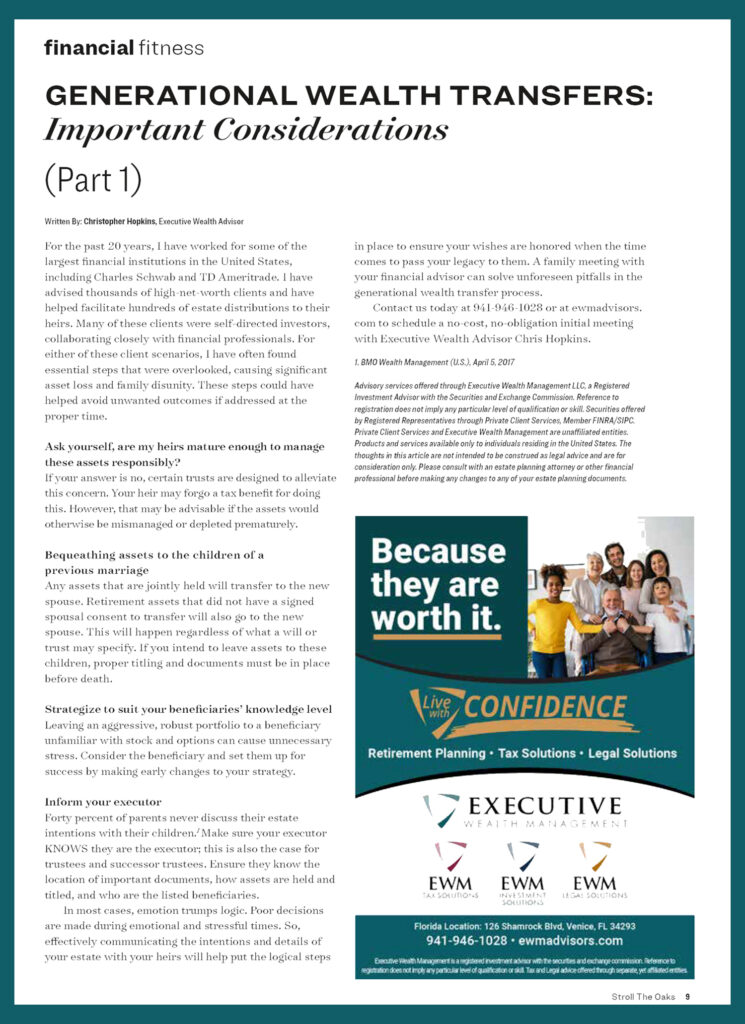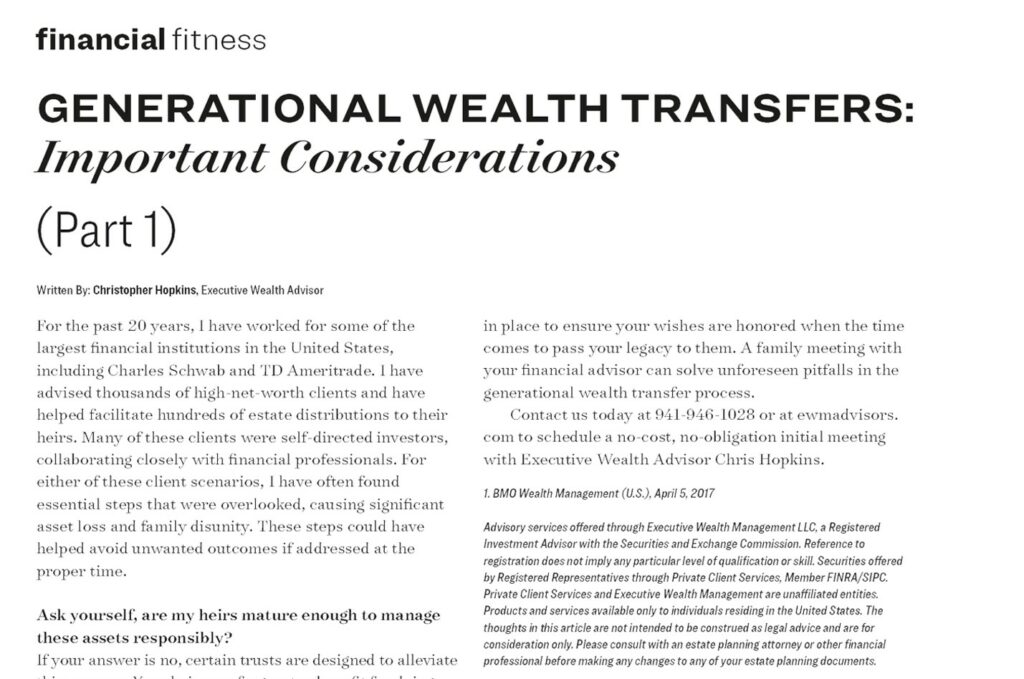
Written By: Christopher Hopkins, Private Wealth Advisor
Often, people overlook the most critical details of successfully transitioning assets from parents to heirs – proper communication and operational aspects of the plan. I have helped facilitate hundreds of estate distributions from investors to their loved ones. Read along to uncover the most common operational pitfalls.
Retitling Assets After Establishing a Trust
Simply handing the trust documents to your Advisor or Broker for them to keep in your file is not the same as retitling. Asset retitling typically involves establishing a new trust account and transferring assets to fund the trust..
Naming Your Estate as a Beneficiary of a Qualified Account.
When naming your estate as a beneficiary, this often leads to unintended outcomes when transferring assets into the estate account, which is essentially a taxable entity. Those distributions from the estate account are now taxable assets to the heirs. This will happen regardless of conflicting instructions stated in the trust or will.
Don’t Have a Trust? Add a TOD or POD to Taxable Accounts
Transferring assets after death can get complicated if you do not have trust. Rather than burdening grieving beneficiaries with financial complications, adding TOD (Transfer on Death) or POD (Payable on Death) will make life easier for your heirs. Generally, the only document needed to initiate this transfer would be the death certificate.
Update Beneficiaries
As simple and obvious as it seems, this is often overlooked. Review your beneficiaries when life changes occur, such as new additions to the family, marriage, death, or divorce. Many folks establish their retirement accounts with only partially completed beneficiary information. For example, when creating the account, the owner does not have all the required information to add the intended beneficiaries, such as social security numbers, dates of birth, etc. Make sure beneficiaries KNOW they are beneficiaries; you would be surprised how often assets remain unclaimed.
The wealth transfer process from your estate to your beneficiaries comes at an already emotional time for family members. If the action steps above are not considered, this emotional time can also be confusing. Unfortunately, this can then cause the division of your assets to become a division of the family. A family meeting with your trusted financial professional will help to ensure that your legacy is passed smoothly to your heirs and that your wishes are honored.
Contact us today at (941) 946-1028 or at ewmadvisors.com to schedule a no-cost, no-obligation initial meeting with Executive Wealth Advisor Chris Hopkins

